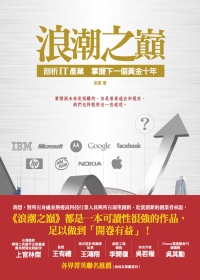Schools Go Into the 'Cloud' to Embrace the Popularity of Social Media
科技業者推出以雲端為基礎、將社交媒體融入教育的平台,吸引學校擁抱雲端,帶動雲端校園崛起。
■Several start-up companies have begun offering cloud-based platforms that combine education and social media.
美國黑板(Blackboard)公司在1990年代末期推出線上平台,協助教職員量身打造課程管理,堪稱雲端校園之濫觴。
順應社交媒體興起,新創科技企業推出以雲端為基礎、將社交媒體融入教育中的平台,則吸引學校擁抱雲端,帶動雲端校園崛起。
去年12月以Coursekit為名在美國紐約設立、然後今年4月改名為Lore的公司,及去年在新加坡設立的Teamie公司,都是這些新創科技企業中的佼佼者。
Lore的行銷營運主管霍斯利(Hunter Horseley)表示,這麼多年來,黑板和Moodle、Sakai等業者在理念上並沒有太大改變,仍是典型的學習管理系統(L.M.S.'s)─授權使用軟體,通常要價不菲,主要賣給學校當局,再由學校提供給教職員使用,著重管理檔案與成績。
受國高中歡迎
以廣義的學習管理系統而言,目前全球已有超過60家企業提供這種服務,其中美國Emodo、Schoology等公司的免費學習平台,在初、高中尤其受歡迎。
Emodo現在全美國約有7萬所高中、共約600萬名使用者。Schoology在全球有1.8萬家學校使用,其中大都為美國的學校。
霍斯利強調,該公司的產品並非學習管理系統,而是一種學習平台,直接行銷給教師及學生。Lore目前仍免費提供其產品,而其產品也已打入美國600家的大學或學院之內。
新加坡Teamie公司標榜其軟體可讓教師創造、分享及管理與學校有關的所有內容,包括讓學生在平台上合作完成指定作業─類似臉書上「塗鴉牆(Wall)」的功能。
Teamie共同創辦人辛哈(Ashwin Singh)表示,該公司產品分免費及付費版本,後者側重提供客製化的服務,收費低,平均每位使用者月付3到7新加坡元(約5.50美元)。
讓學習趣味化
Teamie的另一位共同創辦人蘇卡拉(Shivanu Shukla)指出,社交網絡已實質上成為溝通的模態,因此該公司致力於讓線上學習「社交化」與「趣味化」,設計出記點、虛擬獎章等措施,鼓勵學生發問、回答、提前繳交作業等。
在高等教育方面,特別是企管碩士學程,蘇卡利指該公司產品可追蹤學生的課中參與情況,供作打分數的參考。
Teamie公司強調其產品有很強的分析性組件,可提供細至每道試題、而非僅整組試題的平均分數、高低分數分佈等資訊。
Teamie努力提供支援日文、中文、印度文等多語系的功能,及增加遊戲,來凸顯價值。
Teamie公司表示,未來1年半,將積極開拓星、馬及印尼等地的學校市場,也已開始測試印度市場,也正放眼澳洲市場,及找尋可以打開南韓、日本等市場的合作夥伴。
- 2012-06-03 01:38
- 工商時報
- 【李鐏龍】
Several start-up companies have begun offering cloud-based platforms that combine education and social media. Companies like Teamie, based in Singapore, provide software that lets teachers create, share and manage academic content, and also let students collaborate on assignments on platforms that are similar to the “walls” used on Facebook.
Learning management systems, or L.M.S.’s, have been around since the late 1990s, when Blackboard, a company in Washington D.C., introduced an online platform to help educators customize course management. Today, there are more than 60 companies providing such services worldwide.
“Blackboard, Moodle and Sakai have a philosophy that hasn’t changed much since Blackboard first invented the space in the ’90s,” said Hunter Horsley, the head of marketing and operations at Lore,referring to other learning-management systems. “They are typical L.M.S.’s — software that’s licensed, often for quite a bit of money, to school administrations and then provided to the faculty, primarily as a way to keep files and grades.”
Lore, which was originally known as Coursekit, began operations last December and changed its name to Lore in April. The company, based in New York, offers its platform for free.
“Lore offers similar things for courses, like calendar, file, and grade management, but we don’t think of ourselves as an L.M.S. We’re building a platform for learning,” Mr. Horsley said, pointing out that the company was marketing directly to students and teachers.
In the United States, free social learning platforms like Edmodo andSchoology have been making waves in secondary schools. Edmodo, which was set up in 2008, has about six million users in about 70,000 U.S. high schools. Schoology, which was founded in 2009, is available in more than 18,000 schools internationally, though most of those schools are in the United States. Lore is already in use in 600 U.S. colleges and universities.
Teamie, which was founded last year, introduced a pay-as-you-go social learning platform that costs on average 3 to 7 Singapore dollars, or as much as $5.50, per student each month.
Ashwin Singh, a co-founder of Teamie, said that while the company also offered a free version, the subscription service could be customized to an institution’s business processes and offers administrative features to better manage multiple classrooms.
Teamie is trying to stand out by supporting multiple languages, including Mandarin, Japanese and Hindi, and by adding more games. The platform already has several classrooms running in Japanese, which indicates the potential in that market, Mr. Singh said.
Another Teamie co-founder, Shivanu Shukla, said social networks were becoming the de facto mode of communication. Teamie is trying to make online learning social and fun to improve student engagement. It also rewards positive behavior with points and customized virtual badges for asking and answering questions, or submitting homework before it is due, he said.
“In higher-end education, especially in the M.B.A. programs, you can be graded based on your class participation,” Mr. Shukla said. “On this platform, through the online mechanism, we can actually track your participation and see how well you’re doing on a leader board. We’re seeing that some of our customers are looking to use it as a proxy for class participation as well, if not a graded tool at least an indicator of who is participating more.”
Stamford Raffles College in Singapore recently chose Teamie as a learning platform.
Colin Pereira, the chief executive of Stamford Raffles College, said the platform lets students on different campuses collaborate and share experiences with fellow students and faculty members.
Mr. Pereira said that, while his school had been using Blackboard and it had evaluated Moodle, it settled on Teamie because of its “fresh approach” of using a wall similar to what is on Facebook and its ease of use. He said the platform saved time and effort because it automated some types of grading.
Teamie says it has a strong analytical component that provides students and teachers with additional information beyond the student’s score, like the class’s high and low grades, as well as averages for each question and not just the entire test.
Over the next 18 months, the company will be approaching schools in Singapore, Malaysia and Indonesia. It has also started testing the market in India, though Mr. Shukla said there were some difficulties because of the reach and quality of broadband access in some areas.
“Beyond that, we are looking at Australia, and partners that could take Teamie to Korea and Japan, where we’ve already had very good interest,” he said.


 留言列表
留言列表
